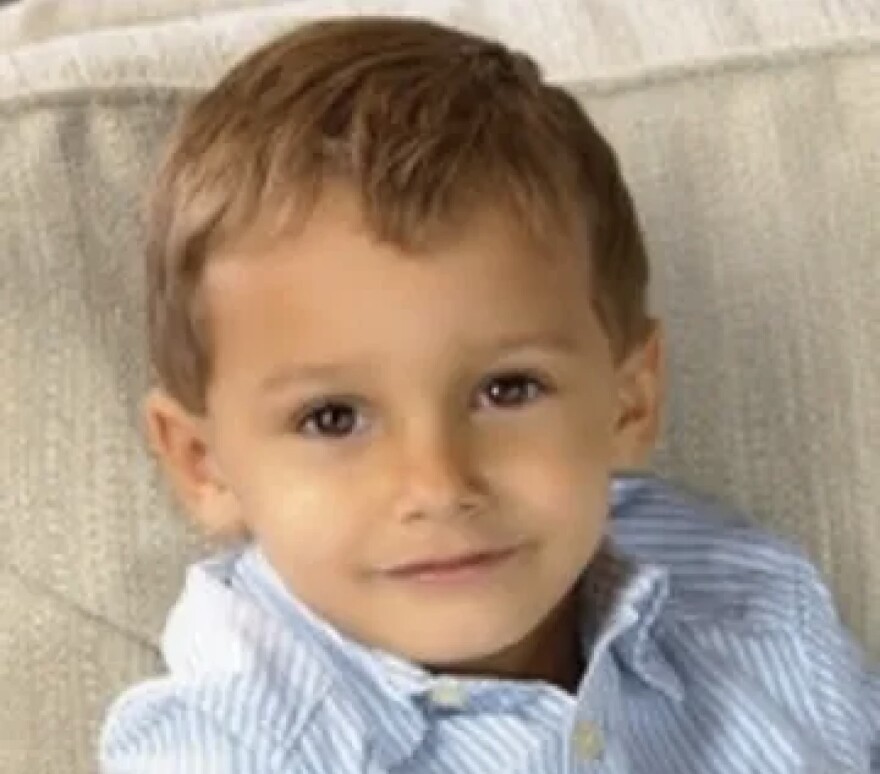Stephanie Jones, the mother of 8-year-old Navin Jones, was sentenced Thursday to 100 years in prison for her involvement in his 2022 death.
Navin died March 29 2022 of “extreme neglect and abuse.” He weighed 30 pounds at the time of his death.
Stephanie Jones, 37, pleaded guilty Dec. 7 2023, to one count of first-degree murder.
Brandon Walker, Navin’s father, was convicted first-degree murder Dec. 15, 2023 after a five-day jury trial. He was sentenced to life in prison.
Walker’s defense centered around the claim that it was Stephanie who had abused Navin, and that Walker spent most of his time at work and was unaware of what was going on. But prosecutors showed text messages shared between Stephanie Jones and Walker to prove his knowledge of Navin’s treatment.
The case highlighted a pattern of failures by the Department of Children and Family Services that did not remove Navin from his parent's care
Stephanie Jones was not eligible for a natural life sentence as part of her plea deal. Her sentence could have ranged anywhere from 20 to 100 years. She has to serve 100% of her sentence.
State asks for max sentence
During Thursday's hearing, detective Jason Lee of the Peoria Police Department testified on the investigation following Navin’s death.

Body camera footage was shown of first responders arriving to the house on the day he died. The footage showed them removing Navin from a bathtub and placing him on the living room floor. He was extremely thin in the footage shown.
Lee testified that Stephanie was home during this time. He said that in an interview Stephanie said she hadn’t seen Navin since 8 p.m. the night before. The 911 call was made at 2 p.m.
She told Lee she was watching TV and went to get food when she realized she hadn’t seen him. She found him unresponsive in his room.
Photos of Navin’s room were shown. The room only had a bed with a pillow on it and one toy. There were no sheets or blankets on the bed. There was a rope attached to the door that was used to lock Navin in his room. A note on the door instructed Navin’s brother not to feed him.
In the interview with Lee, Stephanie said she wrote the note.
Autopsy photos also were shown at the hearing. In the photos, Navin’s bones are visible and there is bruising on his body. Close-up photos showed ligature marks on his wrists, which Lee said were the result of being restrained.
Stephanie also told Lee that Navin had behavioral issues. Lee said she described her relationship with Navin as “not a close bond.”
Lee also testified to text messages shared between Stephanie and Walker that referenced her locking Navin in the basement. He said Stephanie believed they could not take Navin to the doctor because they did not have guardianship. Navin had lived with his grandmother for most of his life.
In her closing, Donna Cruz of the Peoria County State's Attorney's office, said Stephanie refused to take responsibility for her actions. She asked for the most severe sentence.
Letter read from Navin's brother
A letter from Navin’s brother was read in which he described the hurt he has felt over Navin’s death. He said Navin was the best brother.
He said he did not know why his parents did what they did to Navin, or why he had to see it happen. He said they restrained Navin in the basement and told him his grandmother had died.
He said they should both go to prison for what they did.
Defense asks for 37 years
The defense showed a psychological evaluation of Stephanie conducted after Navin’s death. The report found she experienced dissociative episodes that prevented her from taking care of Navin.
The evaluation said it was hard to determine when this started because Stephanie also had substance abuse problems. She reported she had prior symptoms of mental illness.
Peoria County Circuit Court Judge John Vespa asked why Stephanie didn’t help Navin when she wasn’t dissociating. The defense said she would dissociate whenever she thought about Navin’s deteriorating health.
The public defender made clear throughout the argument that it wasn’t an attempt to prove innocence, but instead to offer context.
The defense also referenced Stephanie’s limited criminal history that includes traffic violations and a misdemeanor for retail theft. They asked for 37 years in prison, saying she could be rehabilitated. The defense also said her guilty plea showed evidence of remorse for her actions.
Sentencing
Before she was sentenced, Stephanie read an apology to both of her sons. She said she had experienced symptoms of mental illness for as long as she could remember. She said she regretted not seeking help sooner and said she wished she could bring Navin back.
She said Navin’s brother should not blame himself and apologized for what happened. Navin’s brother was present in court.
In his sentencing, judge Vespa also said Navin’s brother should not blame himself for what happened.
He said he was stunned by the time and effort from Stephanie in starving Navin. He said he believed she was a “bald-faced liar” and that the prospects of rehabilitation were “pretty much zero.” He also said he thought she was insincere in her apology.
“The punishment I want to give is not available,” he said.
Vespa said he was sentencing her to 100 years because that was the maximum allowed under the law, and he would give her more if he could.


